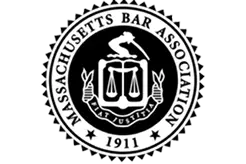Appeals Court Ruling in Commonwealth v. Gomes Reinforces Article 12 Protections for the Right to Remain Silent
In Commonwealth v. Gomes, 91 Mass. App. Ct. 1 (2017), the Massachusetts Appeals Court ruled that a defendant’s post-Miranda invocation of the right to remain silent, even in a non-custodial setting, must be scrupulously honored under Article 12 of the Massachusetts Declaration of Rights. The court emphasized that this core right against self-incrimination requires protection regardless of whether the police interaction was custodial or not, leading to the suppression of the defendant’s statements.
Our Take:
The Superior Court’s decision in Gomes recalls that the Miranda rule is not an end in itself, but a mechanism by which a person’s constitutional right against self incrimination is animated. In Clarke, the SJC recognized that although Miranda bundles several rights into its warning, including notably the right to counsel, all of those rights, and the Miranda warning itself, are servient to, and designed to actualize, the right against self-incrimination. Article 12 provides sturdier protections to that core right than its federal counterpart. But what are the limits of article 12’s impact in the pre-custodial context? This was a question which Libby answered – but only in part. Libby involved equivocation in the context of the right to counsel. Given the right to counsel’s supporting role in the Miranda landscape, Libby evaluated pre-custodial equivocation under a traditional voluntariness analysis. But in Gomes, the right at issue was that of silence in the face of accusation – the fundamental right at the heart of Article 12. In evaluating the post-Miranda dialogue, the court focused on Gomes’ unequivocal and affirmative gesture of “no” when asked if he would like to talk to the detectives about the specific allegation. In drawing this nuanced distinction from Libby, the court in Gomes recognized that Gomes had invoked his core right to remain silent, and that even in the non-custodial context, article 12 demands that the right against self-incrimination be scrupulously protected.
I’m interested to see how this plays out before the SJC. In the interim, I imagine the ruling will receive a predictably polarized reception. While some will consider the judge’s ruling a welcome reinforcement of a core civil liberty, prosecutors might view the ruling as punishing police for erring on the side of giving Miranda. Here, the detective exercised an abundance of caution in a situation which was by any legal measure non-custodial: no physical restraint or force was used; police did not tell Gomes he was a suspect; he was allowed to leave on his own. It was only in the context of pre-custodial Miranda that Gomes invoked his right to silence. This sequence of events might very well leave prosecutors and police with a bad taste in their mouth, and encourage them to reject the SJC’s invitation to administer Miranda prophylactically.


 (978) 474-0054
(978) 474-0054 





